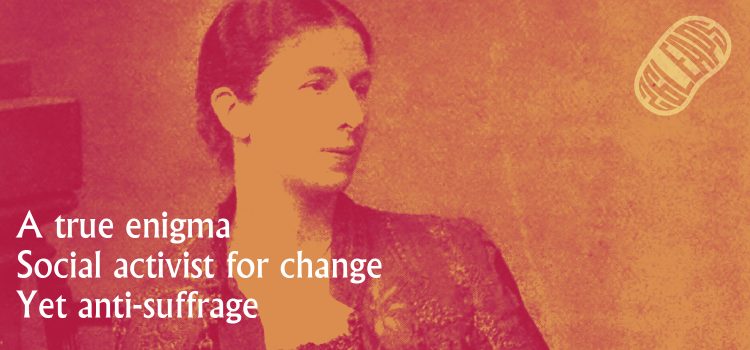
Lindsey Russell
Mary Ward: Social activist and enigma
Mary Ward?
I’d never heard of her.
But she’s made a difference to my life.
And if you’ve ever dropped off your child at a breakfast club,
Or you care for a child with special needs,
Or you’re a woman who’s been to university
Or you’ve received free legal advice,
Or you’ve enrolled on any adult education course,
She’s made a difference to yours.
A successful novelist tackling social themes, Mary was also a reformer who put words into actions. She introduced the ‘lectures for women’ programme at Oxford – a leap in educational opportunities which became a stepping-stone to university entrance for women.
She also founded Passmore Edwards House (known today as Mary Ward House) inTavistock Square. This was part of the social reformist settlement movement. Thanks to Mary, low-paid working mothers could leave their offspring to play in a safe, comfortable environment, while blind and disabled children had properly equipped classrooms.
Her legacy also lives on in the Mary Ward Centre in Queen’s Square, an adult education centre offering everything from art to Zumba.
Yet Mary was an enigma. Despite all her work on equality, she misguidedly accepted the role of President of the Women’s National Anti-Suffrage League in 1908. This damaged her reputation greatly. And because she insisted on being known as Mrs Humphry (without an ‘e’) Ward, she kept her own name in the shadows.
Time now to bring her out of historical obscurity. Mary may have meant one step backward for the Suffragettes – but she took a giant leap forward for disadvantaged people everywhere.
